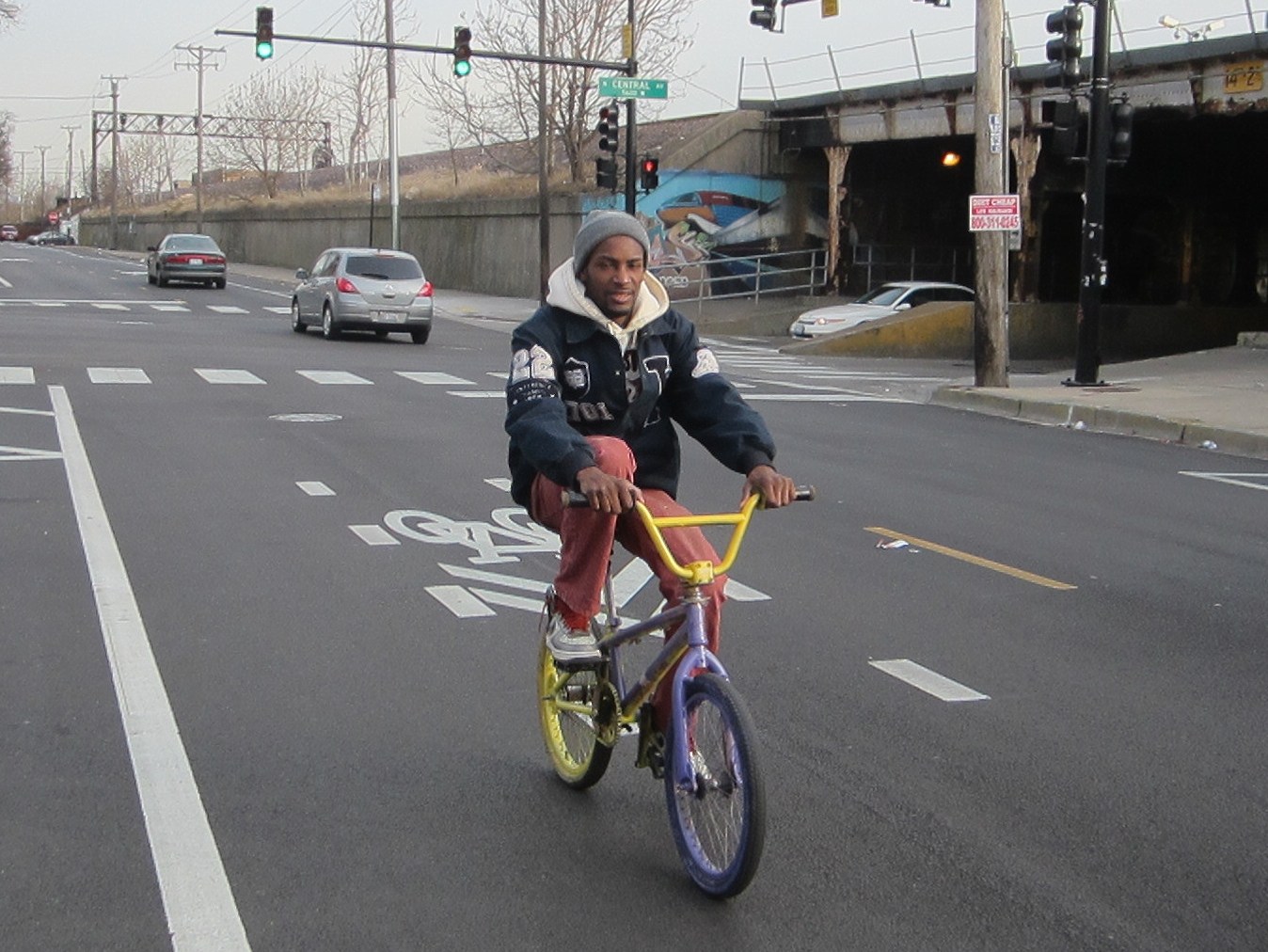In January I wrote about a study by Rutgers researcher Charles T. Brown that found that concerns about racial profiling by police are a significant deterrent to cycling in communities of color. In a survey of 1,660 African-American, Latino, and mixed-race New Jersey residents, 21 percent of men who ride bikes said they had been unfairly stopped by police while cycling. 14 percent of all respondents said fear of police profiling was a barrier to biking.
On Friday Chicago Tribune transportation columnist Mary Wisniewski reported that over-policing of bicyclists of color appears to be an even bigger problem in Chicago’s African-American neighborhoods. Wisniewski’s investigation revealed that twice as many tickets for biking infractions are being written in black-majority community areas than in Latino or white areas.
Moreover, there’s a huge disparity in the number of citations being written in some African-American communities compared to some predominantly white areas with high levels of biking. Wisniewski found that between January 1 and September 22 of last year 321 tickets were written for bike infractions such as sidewalk riding and wrong-way riding in the majority-black Austin neighborhood, according to Chicago Department of Finance records. During the same period there were only five bike tickets written in majority-white Lincoln Park, which has one of the city’s highest bike mode share levels.
Wisniewski notes that the number of bike tickets written citywide skyrocketed from 468 tickets in 2010 to 3,301 in 2015. (Presumably the number of citations written to drivers didn’t also spike by 600 percent during this period, but that’s a whole other issue.) But the increase in the number of citations issued in predominantly black North Lawndale was 23 times higher, soaring from eight to 185 tickets.
A partial explanation for these disparities might be that in underserved neighborhoods with relatively few bike lanes, more people may ride on sidewalks because they believe it’s unsafe to ride in the street. Lack of access to information on safe cycling practices may also result in more people in these communities cycling against traffic because they’re concerned about being struck from behind.
But these highly lopsided numbers suggest that larger number of citations being issued in black neighborhoods can’t simply be attributed to more lawbreaking by bike riders in these areas. They indicate that officers are much more likely to stop and ticket people for bike infractions in African-American neighborhoods than they are for the same behavior in other parts of town.
Community leaders and bike advocates responded to these number by arguing that this “biking while black” enforcement phenomenon is particularly unfair because the $50-200 fines can be a serious hardship for residents of lower-income areas. They noted that “broken windows”-style enforcement of bike infractions is a waste of police resources in neighborhoods that are heavily impacted by violent crime. And they hypothesized that officers may detain people for minor infractions on bikes as an excuse for otherwise-unconstitutional “stop-and-frisk” policing tactics.
Slow Roll Chicago's Dan Black told Wisniewski he's seen people riding into oncoming traffic in black neighborhoods and warned them that they could be targeted by police. “I said, 'Hey, you know that's probable cause,'” he recalled saying to a resident he encountered while on a group ride. The cyclist immediately turned around and joined the ride.
Whatever the reasons are for police writing far more tickets to African-American cyclists than others who break rules on bikes, the Chicago Police Department needs to be held accountable for stopping this practice immediately. Residents of lower-income communities of color have the most to gain from the mobility, health, and economic benefits of bicycling. So not only is racial profiling of black bike riders illegal and unjust, but by discouraging cycling, it contributes to a missed opportunity for improving outcomes in these neighborhoods.





